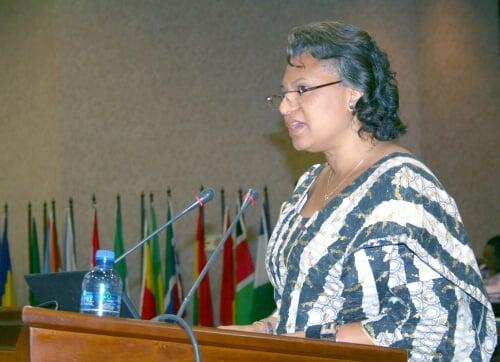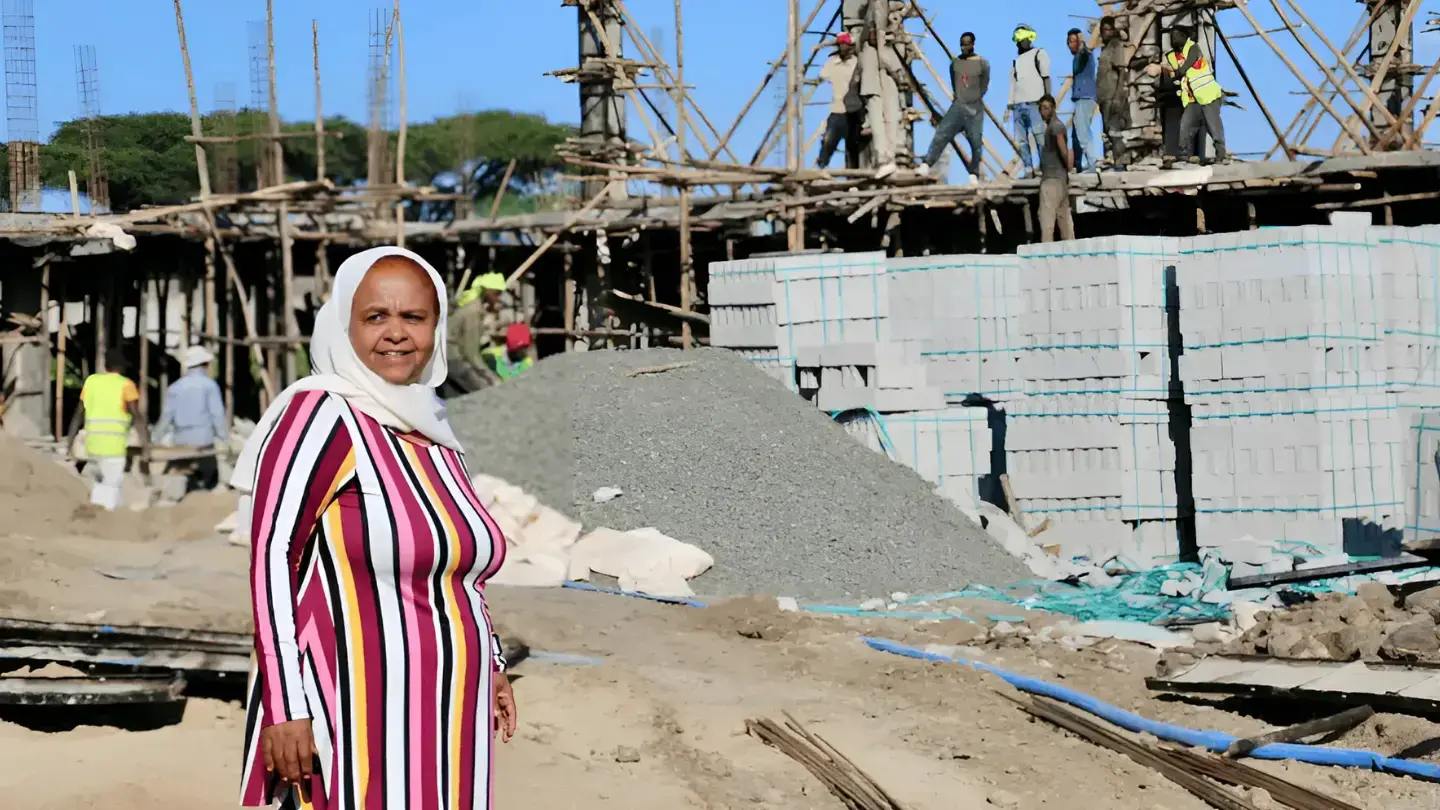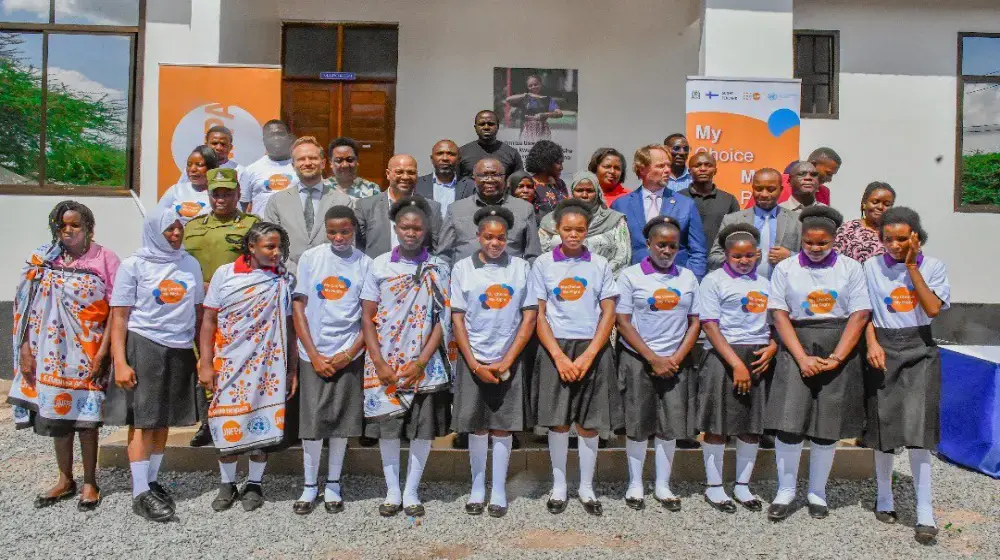JOHANNESBURG, South Africa — It’s time for African states to go the extra mile to ensure that laws and policies on violence against women and girls are implemented and enforced, said Dr. Julitta Onabanjo, Director for UNFPA East and Southern Africa Regional Office.
Speaking at the Pan-African Parliament in Midrand, South Africa, she called for parliamentary support to put in place appropriate national laws and policies that promote gender equality and women’s empowerment, and to prevent every form of violence against women and girls.
Women parliamentarians from across Africa met on 1-2 November to discuss the extensive problem of violence against women and girls on the continent, at the 2013 Women Parliamentarians Conference of the Pan-African Parliament. At the end of the event, a set of recommendations was drafted.
The high-level event was attended by about 150 women parliamentarians, women members of the Pan-African Parliament (PAP), men parliamentarians, ambassadors, high commissioners, non-governmental organizations (NGOs), civil society representatives (CSOs), as well as representatives of women’s organizations, the Inter-Parliamentary Union and United Nations agencies.
Maternal deaths can be prevented
In her address at the opening session, Dr. Onabanjo, said that while Africa celebrates a 41 per cent reduction in maternal mortality in the past two decades, each year 165,000 women still die in Africa due to pregnancy and related causes, most of which deaths could be prevented.
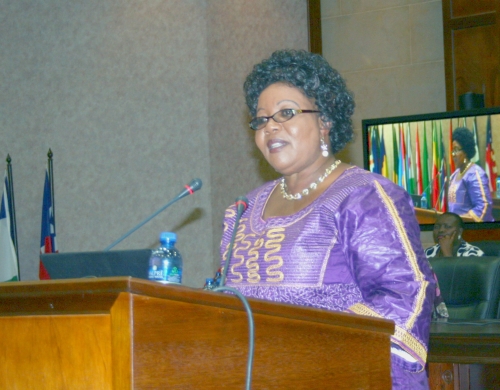
“Many maternal deaths are the result of socio-cultural barriers and violence against women and girls, preventing them from accessing maternal health care,” she said. Apart from physical violence against women, which is common in African societies, many unrecognized acts of violence against women and girls negatively affect their health outcome in pregnancy and childbirth. This includes the denial of their education, early marriage, sociocultural norms that prevent gender equality and women’s empowerment, sexual violence against women and girls, and depriving women and girls of their choice to use family planning.
'We know what works'
“We know what works to reduce maternal, newborn and child deaths,” she said. The use of family planning alone could reduce maternal deaths by 33 per cent, and delivery of every child by a midwife would reduce maternal deaths by 75 per cent. “But supervised delivery is less than 50 per cent in Africa. The failing and gaps for inadequate action is therefore not in the knowledge of proven interventions.” Read her full speech.
UNFPA has partnered with the Inter-Parliamentary Union to design an orientation manual on maternal, newborn and child health for parliamentarians. Some UNFPA Country Offices have begun to work with their national parliaments and conducted an orientation with parliamentarians on how to use such a manual.
UNFPA is also working through other platforms to engage with parliamentarians, including national parliaments, the International Parliamentary Union (IPU), and the Africa Parliamentary Forum on Population and Development, to support gender equality, women’s empowerment and increasing opportunities for the girl child.
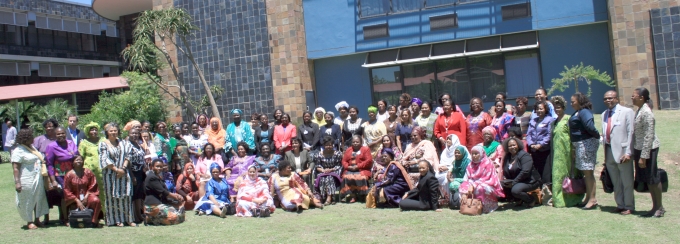
'Let's create a critical mass'
Bernadetta Mushashu, Chairperson of the Pan-African Parliament Women’s Caucus, said the extent of gender-based violence in Africa is not known because most women do not report it. The time has come to “move from legislation to implementation,” she said. She called for the creation of a critical mass to fight the humiliating problem of gender-based violence in Africa.
Between 100-140 million women live with the results of female genital mutilation/cutting (FGM/C), said Bodil Ceballos, AWEPA Representative from the Swedish Parliament. Each year, a further 3 million African girls were at risk of being circumcized. Every year, around 10 million girls under 18 years are forced into marriage. She called for African parliaments to legislate against FGM/C and child marriage, and to monitor implementation.
'It's time for action'
Seynabou Tall, UNFPA ESARO Gender Technical Adviser, said that while good progress has been made to protect women and girls from gender-based violence – by establishing international standards and norms as well as legal and policy frameworks – UNFPA is committed to the acceleration of implementation of those standards at all levels. However, the translation in national frameworks and implementation is still slow. She was speaking on behalf of Dr. Onabanjo on international commitments to women’s human rights, especially violence against women and girls.
“We strive to achieve a world in which men and women, girls and boys have the best opportunities to develop their full potential, to express themselves freely, to have their rights respected and to live free of HIV, poverty, discrimination and violence. It is time for action. Let us act together to deliver on promises to the women and girls in Africa,” Ms. Tall said. Read her full speech.
The conference was organized by PAP with the support of UNFPA, Africa Health, Human and Social Development (Afri-Dev) Parliamentary Network/Africa MNCH Coalition and the IPU.

